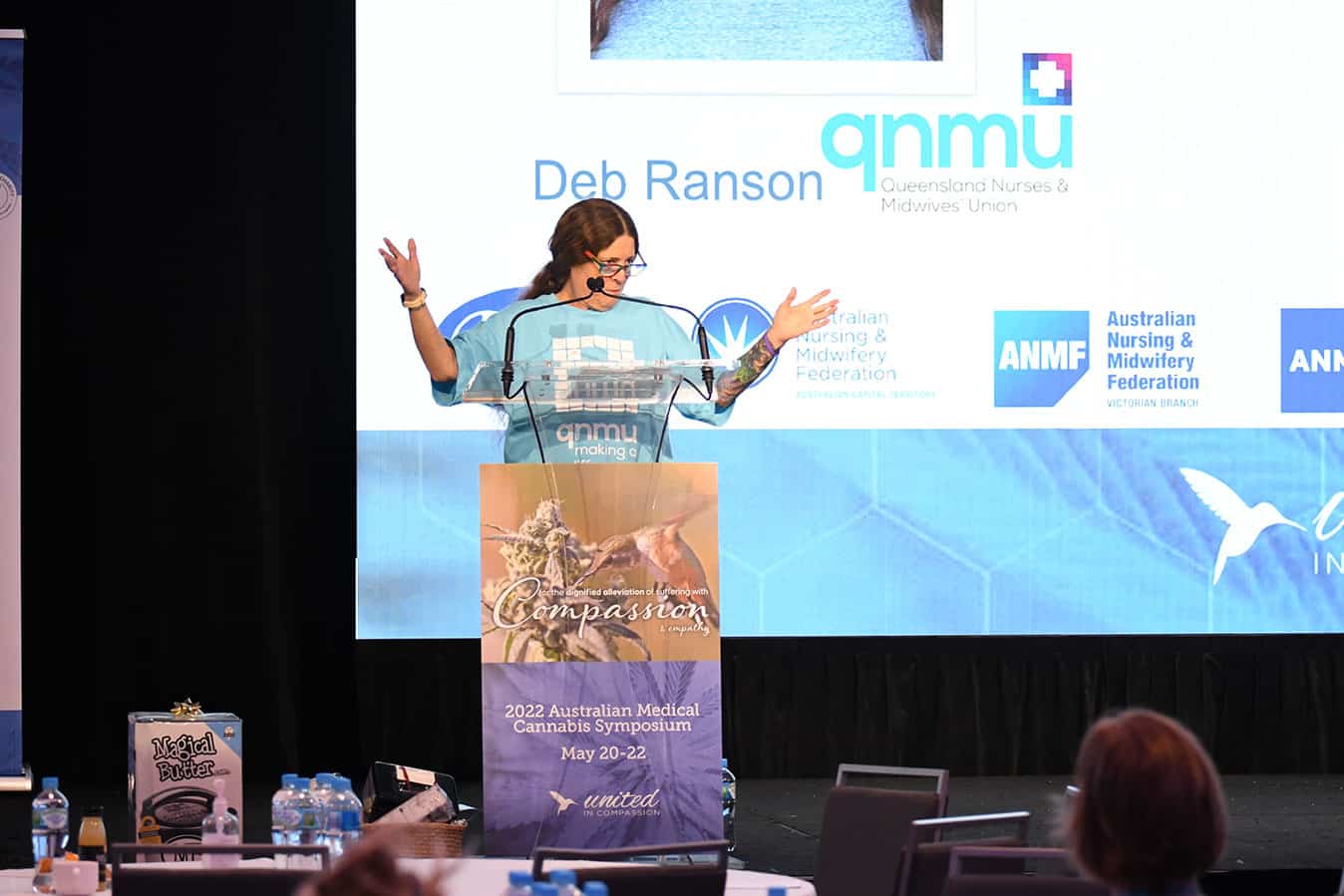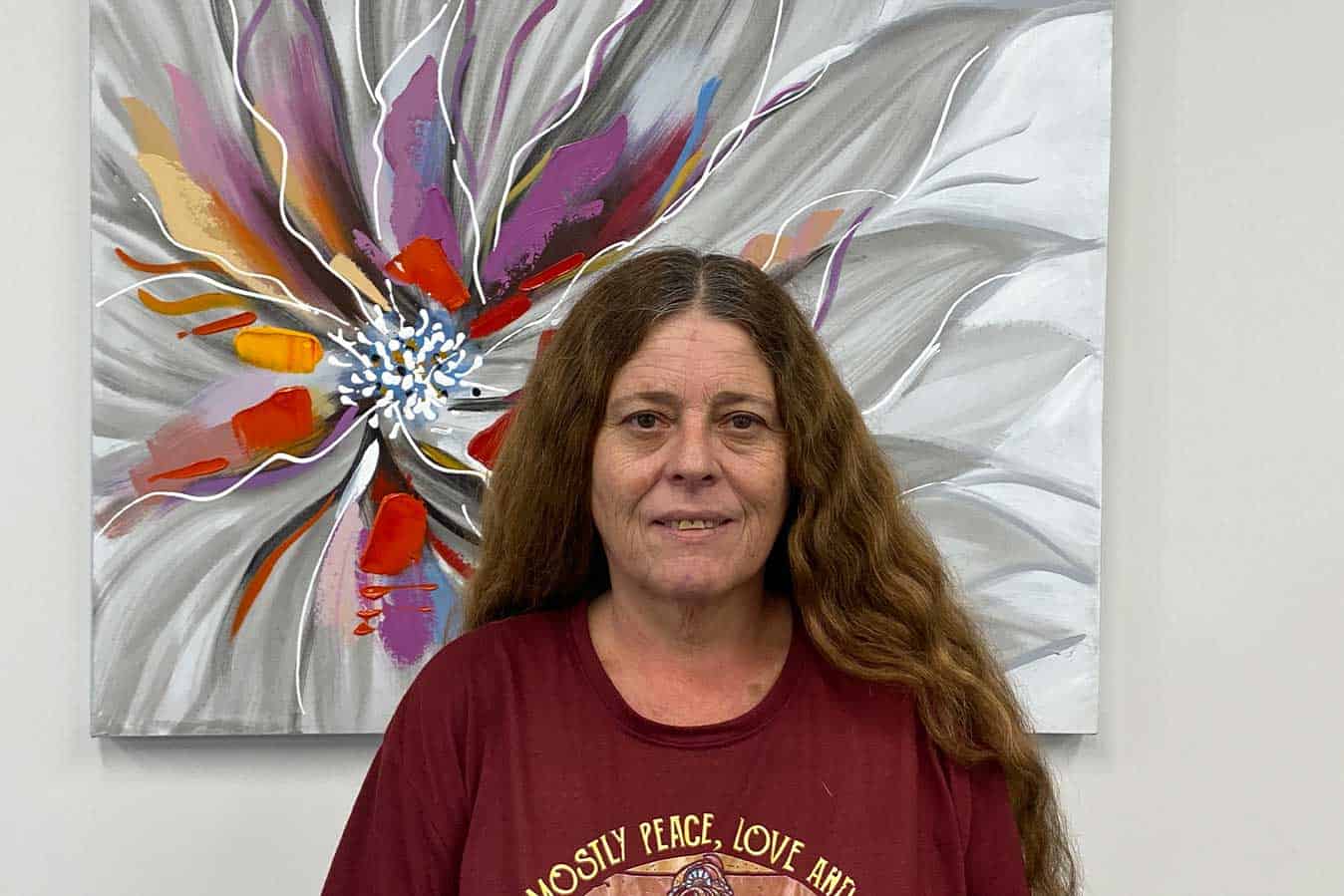Looking on from afar, registered nurse Deb Ranson was always intrigued about medicinal cannabis and its potential to ease pain and symptoms triggered by a range of conditions and diseases. She recalls listening to countless stories from patients and families about how the drug helped improve quality of life and wanted to delve deeper.
The “heartbreaking” accounts eventually spurred Deb to seek out more information and evidence. In 2014, she began forming groups for like-minded nurses looking to access education about medicinal cannabis, yet hit roadblocks
“I discovered there was nothing out there, whether for the community or health professionals,” says Deb.
“No one seemed to want to know about it, let alone understand it.”
Undeterred, Deb kept developing her knowledge and education in the field, built networks, and increased her advocacy for safe and accessible medicinal cannabis for anyone who may benefit from it.
For the past three years, she has been working as a Cannabis Nurse Consultant in Queensland, helping educate patients about medicinal cannabis, including how the body’s complex endocannabinoid system works, and support them through their journey.
An alternative medicine that can have adverse effects if not taken correctly, Deb bases her advice on what conditions patients experience and what other medications they may be taking.
“At the beginning they can be a bit naive about it or quite worried but you go through all the education with them and help them understand that I’m not here to get you high, I’m here to help you be well,” says Deb.
“It’s very much a long, progressive journey with patients from the beginning right through to complete wellness where you keep following them to make sure doses are correct and there’s been no adverse issues for them and that they’re not mismanaging their dosing. Some patients think it’s a cure for everything and will go against medical advice or stop some pain medications and find themselves in a world of pain.”
Medicinal cannabis was legalised in Australia in 2016, thanks to passionate advocates like Deb and Lucy Haslam, a retired nurse and Co-Founder and Director of United in Compassion.
At last year’s inaugural Medicinal Cannabis Conference for Australian Nurses, delegates learned not all medicinal cannabis products are the same and that finding the right product and right dose for individuals with a variety of conditions is crucial.

All domestic cultivation, production and manufacturing of medicinal cannabis is regulated under the Narcotic Drugs Amendment Act 2016 and Narcotic Drugs Regulation.
Only some nurses can prescribe medicinal cannabis, namely nurse practitioners. They must submit an application for special approval, or a doctor can seek approval and then allow the nurse to administer the product.
As she is not a nurse practitioner, Deb cannot prescribe the drug, so instead works with patients on assessment and education.
“It’s about what that patient needs, what conditions they have and then just the whole process of how we monitor where they get their medicine, how they take it and making sure they’re fully aware of the dosing.
“I can’t sign off on a script but I can get the patient to the end where their doctor looks at the consult and says, yes, that’s exactly what’s required. They’ll talk to the patient and make sure they’ve considered and understood all the information and education and go ahead.”
During Medicinal Cannabis Awareness Week earlier this year, Deb and co-founders, nurse practitioner and medicinal cannabis prescriber Simone O’Brien, and ANMF Federal Education Officer Jodie Davis, launched the Australian Cannabis Nurses Association (ACNA), a group for nurses committed to awareness, advocacy and compassion with endocannabinoid therapies.
There is a proposal for a nurse education program to be developed by ACNA and it is advocating to get study of the endocannabinoid system (ECS) into the undergraduate Bachelor of Nursing curriculum to increase understanding and awareness in students.
Deb says a lack of education exists among clinicians when it comes to medicinal cannabis and that the group will offer training and resources to support nurses to advocate for better patient access.
“There’s a lot of nurses out there in hospitals that have come forward with concerns. Patients come to hospitals with their medications (medicinal cannabis) and they don’t know what to do, they don’t know how to measure it, and their patients are usually more versed in that medication than what they are,” reveals Deb.
“It’s about advancing that knowledge and helping nurses to be able to be proactive for their patients and get that information and support for them.”
Asked about the biggest barriers holding back the progression of medicinal cannabis access in Australia, Deb suggests affordability, stigma, and not being able to legally drive in most states while taking the medication, remain the biggest hurdles.
She is an ambassador for Drive Change, calling for cannabis law reform Australia-wide to allow people to drive while taking medicinal cannabis.
“The wall was dropped once it became legal, patients were able to access it, but no one sort of put thought into what the ramifications would be of legalising it,” Deb argues.
“There’s still many hurdles that we have to get over and access and driving are the biggest.”
While Australia lags behind many international countries in the medicinal cannabis space, Deb remains confident that meaningful reform can occur.
In August, United in Compassion will hold its second Medicinal Cannabis Symposium, championing the cause and calling on more nurses to be part of the change.
Deb says nurses who attended last year’s conference reported improved knowledge about medicinal cannabis and its potential benefits.
“They left there thinking ‘Wow, this is an exciting new medicine and it might actually save patients years of adverse effects from pharmaceuticals. This might just be better for them instead’.
“The aim this year is just to continue to lift that stigma and keep pushing this through so it is an everyday thought about thing, not something that’s whispered about behind the counter, or practitioners talk about in the tearoom. It’s out there on the floor.”
More information – https://unitedincompassion.com.au/









2 Responses
I’ve forgotten how to book p please send me a link Urgent please
The next conference will be held in 2025. Link here – https://uicsymposium.org/